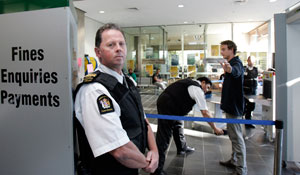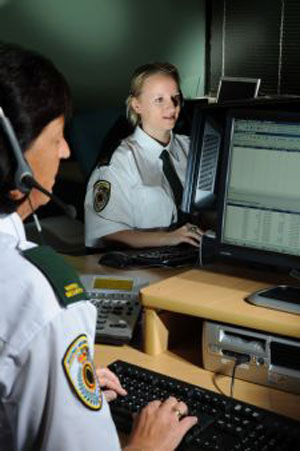Security Officer
Tasks & duties

Security officers may do some or all of the following:
-
patrol properties and guard entrances
-
check that doors, windows and gates are locked
-
look out for fires or hazards
-
monitor areas on closed-circuit television
-
operate electronic security equipment and computer software
-
pick up and deliver valuables and money
-
alert the police, the NZ Fire Service or employers as necessary
-
train workers in buildings to observe safety precautions and use safety equipment
-
undertake noise-control duties and seize equipment
-
be employed as personal security guards
-
administer first aid
Skills & knowledge

Security officers need to have:
-
knowledge of security and surveillance observation methods and equipment
-
knowledge of the legal procedures for arrest
-
an understanding of the laws on trespass and assault, and personal property
-
knowledge of security guard licensing
-
good people skills
-
planning and organisational ability
Entry requirements
To become a security officer you must undergo a police background check and have a driver's licence. A Certificate of Approval issued by the Ministry of Justice may also be necessary.
Secondary education
Although there are no specific secondary educational requirements for security officers, three years of secondary education is recommended.
Tertiary education
It is useful for people to have formal training in security awareness and procedures.
Training on the job
Skills are gained on the job. Some security companies offer in-house training courses. National qualifications training, which incorporates a mix of workplace and external assessment, is also becoming increasingly popular in the security industry.
Useful experience
Useful experience for security officers includes work as a police officer, customs officer or member of the armed forces. Any work involving contact with people is useful.
Related courses
Security Services
For more information, please refer to Career Services.
Document Actions
